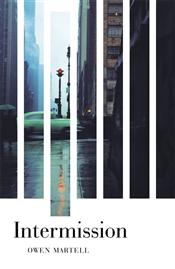 Published by Heinemann 3 January 2013
Published by Heinemann 3 January 2013
192pp, hardback, 12.99
Reviewed by Siân Miles
Owen Martell, a prolific and internationally acclaimed writer, is as yet, but certainly not for long, largely unknown to monoglot anglophone readers and critics. This is a bit like living next door to Yeats, Shaw, Wilde and Heaney and having no access whatsoever to their work. For Martell’s considerable published oeuvre has appeared hitherto almost exclusively in Welsh.
Its themes are as many and varied as its settings and characters, yet if one appears to predominate, it is the role of place in the formation of identity. Earlier work includes a book of short stories accompanied by photographs of Welsh-named places in the United States. The conversations between image and story are reminiscent in their modesty, restraint and perceptiveness, of those conducted by the late, great American, Pulitzer-prize-winning oral historian Studs Terkel. Martell’s first novel, an urban masterpiece pulsating with vibrant, resonant dialogue, follows a similar journey, this time to Chicago in search of a girl.
Martell’s subtly receptive and well-trained ear is tuned, in Intermission to the sounds and silences of the legendary American pianist Bill Evans, himself the son of an émigré Welshman. Soon after the ground-breaking and iconic album which the Bill Evans Trio recorded at the Village Vanguard in 1961, its bassist, the prodigiously talented and revolutionary young Scott Lafaro, was killed in a car accident. Intermission examines the effect of his loss on Evans, and the ways in which the Evans family – brother, mother and father – attempt to assuage his grief in the days and weeks immediately following. They do so by having him by turns at home with them.
The book is dedicated in part to Martell’s own parents and bears as epigraph a telling phrase of Miles Davis who was one of the first to recognize Evans’ genius: Don’t play what’s there, play what’s not there. As in much else of Martell’s work, the theme of absence as presence is explored. In a revelatory interview, Martell suggests that the meaning of home and coming home may lie in a set of electrical and chemical impulses. In this work, however, he examines its meaning in other ways, some of which are themselves imitative of jazz generally and blues in particular. There is a sense in which the player, having made an initial, major statement and having explored two or three minor chord changes to it, comes home, as it were, to the tonic.
Intermission is a quartet written in the four voices of Evans’ brother, father and mother. Those of the three males, including in a final coda, Evans’ own, are often muted. This is not a chattering family. What they share is another kind of absence which is, of course, the past. Of his sons, Harry Sr. thinks: ‘How young they were…That they should have become adults, gone off to the army, met women and had children, or that Bill, by all accounts, took heroin now, seemed not just inconceivable but impossible. It was as if they’d tried to pencil in credible adult moustaches on their school photos.’
In the deeply moving pages written in the voice of the Russian-born mother, Mary, entitled All Night Vigil Martell’s real forte as a painter of inner landscape emerges. It is a beautifully nuanced evocation of maternal love resembling the tenderest piéta. She enters the room where her injured son lies sleeping and sits there listening till daybreak to his breathing. ‘She pulled up her chair to be closer to him and wondered if she might take his hand or stroke his arm. Something seemed to be urging her forward, a trembling that insisted on being hers as well. What was it, in a touch that he wouldn’t even register? Something animal, she thought, not something sentimental, which made her think at the same time of an evolution inside her – whole swathes of consciousness – that had been unavailable to her but which she’d come upon again, like late-flowering love, in Billy. In the influence she might have had on him and the regard, for himself and for his gift, that she’d hoped to instil. All things she’d learned for herself only when it became a question of their transmission.’
Intermission is a relatively cerebral work in comparison to Martell’s writing in Welsh and on occasion it slips into polysyllabic obfuscation: ‘Images from childhood, other walls around him, turning zoetropic But the images behind the rotating cylinder…were cheaply synecdochic and imbued increasingly with adult embarrassment.’ Its opening and concluding sentences need a bit of tidying too.
But these are minor flaws in the highly accomplished account of a notoriously elusive topic, the life of music. Martell once said that if he were able to play the drums, he would drop writing tomorrow. Percussion’s loss is literature’s gain.

For an accurate account of Bill’s personal life feel free to read
“The Big Love: Life & Death with Bill Evans ” written by Laurie Verchomin
Set in New York City in 1979, The Big Love recounts the final years of Bill Evans life through the eyes of his 22 year old lover and Muse, Laurie Verchomin. With raw honesty this memoir describes not only the love Bill and Laurie shared, but ultimately the tragic and beautiful death of a Jazz Legend and the coming of age of a young woman.